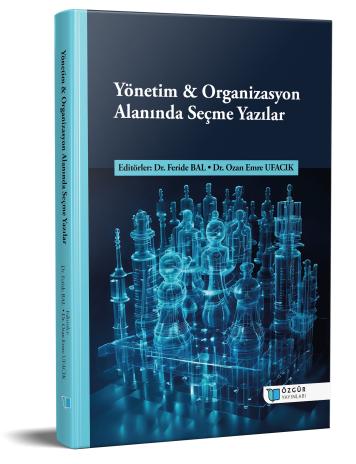
Örgütlerde Mantar Yönetim
Şu kitabın bölümü:
Bal,
F.
&
Ufacık,
O.
E.
(eds.)
2023.
Yönetim & Organizasyon Alanında Seçme Yazılar.
Özet
Bilgi çağıyla birlikte örgüt iklimi ve yöneticilerin çalışanlara olan yaklaşımları, çalışanların sahip oldukları potansiyeli ortaya çıkarmaları açısından son derece önemli hale gelmiştir. Değer gören, yaptıkları işte inisiyatif alan, kararlara katılan ve işle ilgili bilgi sahibi olan çalışanlar örgütsel amaçların gerçekleştirilmesine daha fazla katkı sağlamaktadırlar. Son yıllarda çalışanların yetersiz bilgiyle sadece talimatların yerine getirilmesini isteyen mantar yönetim anlayışı ortaya çıkmıştır. Bu yaklaşım, çalışanların mantarlar gibi karanlıkta bırakılarak sadece işleriyle ilgilenmelerini, yöneticilerin kararlarının sorgulamamalarını savunan ve çalışanlarla kasıtlı olarak bilgi ve tecrübe paylaşımından kaçınan otokratik bir yönetim tarzını ifade etmektedir. Çalışanlardan bilgi saklamak, bazı durumlarda olumlu sonuçlara; bazı durumlarda ise olumsuz sonuçlara neden olabilmektedir. Bu sebeple yöneticilerin işletme özel sırlarını ve mahremiyetini korumak için stratejik bilgileri kiminle paylaşacağını öğrenmesi gerekmektedir. Yöneticilerin art niyetli olarak yüksek ego ve abartılı gurur içerisinde bilgiyi çalışanlarından saklamasının arkasında karanlık liderlik özelliklerinin yansımaları olduğu söylenebilir. Ayrıca çalışanların işletmeyle ilgili yetersiz bilgiye sahip olması, çalışanların örgüte karşı olumlu tutum ve davranışlarını azaltmaktadır. Sonuç olarak, yöneticilerin işletmeyle ilgili bilgileri çalışanlardan art niyetli olarak saklamalarının ya da işletmeyle ilgili tüm bilgilerin çalışanlarla paylaşmalarının yanlış bir yaklaşım olduğu ifade edilebilir.

